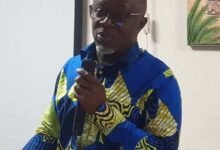Journalists undergo training in mining governance, human rights

A one-day workshop aimed at educating journalists on mining governance and human rights has ended with a call to prioritise safe environmental practices.
It was organised by The Centre for Public Interest Law (CEPIL), a Civil Society Organisation (CSO), in partnership with stakeholders, including the WACAM and Oxfam International.
The workshop also focused on equipping participants with the knowledge and tools to report effectively on human rights violations, governance issues, and environmental challenges linked to large-scale mining operations, particularly in communities affected by the Ahafo and Akyem mining projects operated by Newmont Ghana Gold Limited.
A documentary screening set the stage for discussions on land dispossession, pollution, and socio-economic hardships caused by mining.
Journalists covering the extractive sector shared their experiences, while interactive sessions explored ways to strengthen media advocacy for responsible mining.
Associate Executive Director of Wacam, Mrs Hannah Owusu-Koranteng, highlighted the long-standing human rights abuses in Ghana’s mining sector, citing forced evictions and environmental destruction by multinational companies.
“Human rights violations in mining areas are not new, they have persisted for decades. Companies coerce people into giving up their lands, promising development that never fully materialises,” she stated.
She revealed that Ghana ranks third globally in forest cover loss due to mining, with over 50,000 lands lost in five years.
“Mining has only deepened poverty in affected areas,” she added, urging journalists to amplify community voices.
Executive Director of CEPIL, Mr Augustine Niber, called for stricter governance and corporate accountability, warning that mining companies prioritise profit over people if left unchecked.
“These multinationals are not here for charity. Without strict regulations, they will exploit resources at the expense of communities,” he added.
He urged the government to ensure the enforcement of human rights and environmental laws.
According to Mr Niber, Gold mining contributes significantly to Ghana’s economy, generating $6.38 billion in foreign exchange earnings in 2022 and accounting for 3.9 per cent of GDP.
However, he bemoaned that affected communities continue to face water contamination, land displacement, and deforestation, exacerbating poverty.
Despite regulatory frameworks like the UN Guiding Principles on Business and Human Rights, he indicated that mining communities still struggle with inadequate compensation, loss of livelihoods, and poor access to clean water, healthcare, and education.
He further urged journalists to expose injustices and push for policies that will ensure mining benefits for both the economy and affected communities.
BY RAISSA SAMBOU







